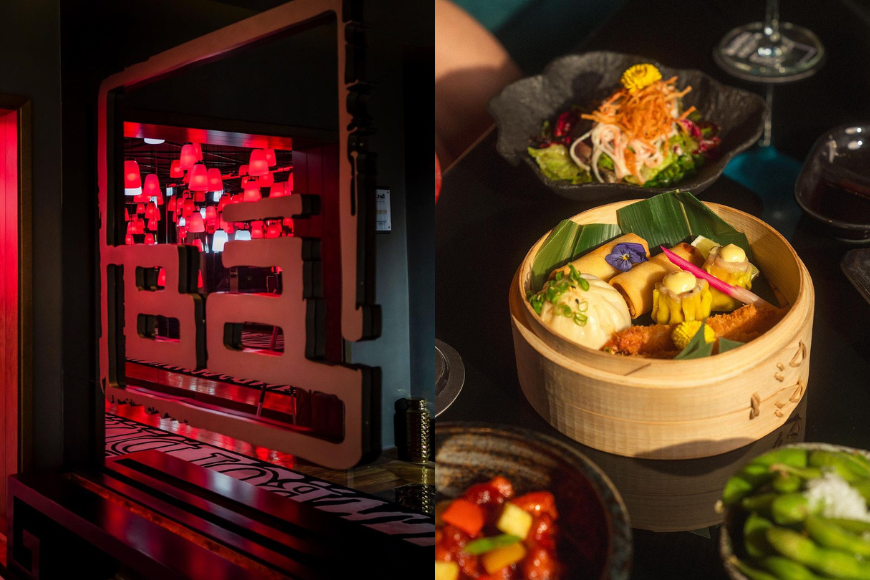Despite uncertainty, Eric Barrett, IBDP Coordinator at Dunecrest American School is confident IBDP will overcome the pandemic
25 June 2020
| Last updated on 28 June 2020IB? US Diploma? Explore what the future holds for conventional education in the autumn with Dunecrest American School's IBDP Coordinator, Eric Barrett...
On March 18, the British Government took the extraordinary step of cancelling all GCSE and A-Level exams in the UK in May and June 2020 due to the Coronavirus Pandemic (Covid-19).
This was followed in quick succession with the governing body of all IB World Schools, cancelling the May-June 2020 IBDP examinations for the first time in its history, Cambridge International cancelling all international administration of the GCSEs and A-Level exams and the College Board cancelling all March and May scheduled SAT examinations.
With over 5,000 IB World Schools, the IB Organisation was quick to assure students “they would receive their diploma certifications based on course work already submitted and the established assessment, expertise, rigor and quality control established as part of the program.”
Assurances were also provided to students that universities also faced disruptions from Covid-19 and that admissions teams around the globe were working to redefine the criteria on which they would extend offers for their September 2020 placements.
SEE ALSO: 8 reasons an American education will put your child on the path to future success
Fast forward 2 months and the airwaves are buzzing with discussions around what the future holds for conventional education in the autumn, particularly as we seek a vaccine or a clear path forward in regards to Covid-19.
We trust that the Ministry of Education in the UAE continues to confer with the Ministry of Health and Government Ministries on this very issue, carefully balancing public safety and the needs of the economy. Understandably, parents wait and worry about the implications for their children’s future.
Despite all of the uncertainty, I am confident that the IBDP will be able to overcome whatever administrative obstacles the pandemic creates. Why? Resilience, independence, community and adaptability are some of the cornerstones of this extraordinary programme.
According to its website, www.ibo.org, students at IB World Schools like Dunecrest American School, are given a unique education, which includes, among other benefits:
- Being encouraged to think independently and drive their own learning, and
- Being able to engage with people in an increasingly globalized, rapidly changing world.
It’s as if, in some ways, the very pedagogy of the IBDP is preparing students for the globalised world with modern obstacles such as the one we are all currently experiencing. But, what does this mean for those entering high school or making critical decisions about their final high school qualifications?
High school students in Dubai are spoiled for choice in terms of curriculum, courses and community. Leveraging the 43 year-heritage of its parent company, Dunecrest American School, even before the Coronavirus pandemic, elected to offer its students the choice of the American High School Diploma, the International Baccalaureate Diploma Programme® (IBDP) in Grades 11 & 12 or a hybrid option where students take the American High School Diploma while earning IB Certificates in specific courses.
Prospective high school families often ask about the difference across the 3 tracks. In addition, they often question why Dunecrest has chosen not to offer the once very popular, Advanced Placement (AP) courses.
Now, parents are also asking about the implications of the various programs for their child’s high school learning and social experiences as well as their university prospects. We caught up with IBDP Coordinator, Eric Barrett, to answer these questions and more...
Can you briefly explain the most popular American-affiliated high school programs?
In the USA, the American Diploma is the traditional graduation requirement from a 4 year high school program. Typically students are required to take 4 years (credits) in English, social studies, mathematics, and science, with 2 years of a foreign language and physical education, and 1 credit in the arts.
Our diploma also meets all ministry standards with the study of Arabic, Islamic, and Moral Education. Courses typically follow the U.S. Common Core or Advanced Common Core.
While the diploma is internationally recognised, students submitting an American HS Diploma may need to take an additional foundation year if they want to attend university in the UK, Europe or Asia. Students often supplement the HS Diploma with many clubs, athletic teams and artistic pursuits.
The International Baccalaureate Diploma is a 2-year course in Grades 11 & 12 of the American system. Students must take 3 core courses: Theory of Knowledge (TOK), Extended Essay and Creativity, Activity, Service (CAS) and choose 3 Standard Level and 3 Higher Level subjects from the following groups: Studies in Language & Literature, Language Acquisition, Individuals & Societies, Sciences, Mathematics, and The Arts.
Students are candidates for the IBDP until they complete coursework and external assessments, read and marked by international examiners. The programme is internationally recognised for its intellectual rigor and is embraced by the top international and American universities. Students often earn college credit for their work in the IB and are recognised for their leadership and community work during the programme.
Advanced Placement features single-subject honors courses delivered over one academic year. They offer introductory, college-level material for students. In order to earn college credits, students must sit an AP exam given by the College Board, which also administers the SAT. Typically students need to achieve a 4 or 5 (out of 5 marks) in order to earn college credit.
If classes at a high school are particularly rigorous, students do not need to take an AP class to sit the exam. Traditionally, this was a pathway for American students to earn dual credit, credit for a high school diploma as well as credit towards a university degree.
What is the main difference between the High School Diploma and the IBDP?
At Dunecrest American School, I am often asked what is the difference between an IB diploma course and an American diploma course.
As the IBDP coordinator, I am always quick to note my preference and perhaps bias toward the IB. However, there is great learning that happens in the American diploma track that prepares our diploma candidates to perform very well in the two year IB programme at the end of their high school careers.
SEE ALSO: 5 key things every parent needs to ask about schools in Dubai
The diploma programme isn’t for everybody and many students at our school remain with the American diploma for various reasons: commitments to sports/activities, course offerings that are more conducive to what the student hopes to study in university, etc.
Why doesn’t Dunecrest American School offer AP Courses?
AP courses are advanced courses for a single subject for one year. A student may get a good grade in an AP class but not perform well on the exam, in which case they do not receive college credit. IB is a learning philosophy.
Because courses are taught over a 2-year period, students see both the depth and breadth of a particular concentration. By design, the IB diploma programme requires students to apply their learning in real-world situations... IB’s goal is to create lifelong learners. It challenges participants to be global citizens who are globally conscientious and act accordingly embracing the paradox that two opinions can be different but both correct. It teaches students how to question, how to research and how to grow outside of the classroom.
Peer-reviewed research from around the globe also shows that IB students have higher acceptance rates, attend more selective schools and perform better in university courses. We have also found that there is a strong sense of camaraderie in the IB program that doesn’t exist with AP courses because of the distinct nature of the programme. Finally, but not the least of which, it is internationally recognized.
Particularly coming from Dubai, students and their families often want the option to change their university focus geographically as political, familial, and personal situations can change quickly.
Can you explain the hybrid offering: HS Diploma and IB Certificates?
Taking IB diploma courses in conjunction with American diploma courses is an excellent way to challenge students in particular subjects while maintaining more balance between academics and external pursuits.
Students with IB certificates will sit IB external exams that may reward dual credit (high school and university credit), depending on the university's admission policies. The IB diploma courses also allow the student to sample university-level rigor and expectations.
Some experts say, we must anticipate more pandemics or mass social and economic disruptions due to the highly integrated nature of the world today. In your opinion, is there one program that is better suited to handle these disruptions?
In my humble opinion, the Internet of Everything (IoE) has already made rote learning irrelevant. Given the pace of change and the sheer volume of data produced, this next generation of leaders need to be equipped with creativity, critical and independent thinking skills, international mindedness and empathy.
The IB diploma course goes beyond content and asks students to question “why” they are learning the content. This skill can (and already is) being taught in virtual forums that often extend beyond their specific IB World School and into the IB World Community and into the real world.
The diploma course teaches students to think about their learning and how they best retain, synthesize, and present their learning through the integration of what the IB calls the Theory of Knowledge. Theory of Knowledge or TOK asks students to think about their thinking; it honors the individual approach to learning and recognizes the fact that we approach, interact, and present our learning in diverse ways. A student’s discovery of this unique approach to their own learning is the recipe for success in university and life, much more than a number, a percentage, or a letter attached as a grade.
The IB diploma course offers students the opportunity to discover their own approach to learning as well as the opportunity for dual credit. This learning goal is one factor that separates the IB diploma course from other similar programs such as the AP or even A-levels. And there are many other distinguishing factors in the IB such as international-mindedness, approaches to learning and teaching, and the goal of creating not only knowledgeable students, but caring students that can apply that knowledge to enact effective change to leave the world better than they found it. Again, in today’s circumstances, I find the importance of a kinder, more thoughtful society as integral to solutions with a humane approach.
I would love to talk to you and your child more about what the IB diploma and courses offer in preparation for success in university and life. You can reach me at [email protected]. Thank you.
Explore whether Dunecrest American School is right for your child at our Virtual Open House on Tuesday, July 7.
Register your interest in attending at: https://www.dunecrest.ae/virtualopenday





























































































![We Tried [u]bk's Lively Garden Brunch at Mövenpick JLT Dubai We Tried [u]bk's Lively Garden Brunch at Mövenpick JLT Dubai](https://cdnexpatwomanfood.expatwoman.com/s3fs-public/urban%20bar%20and%20kitchen%20brunch%20main.png)













































